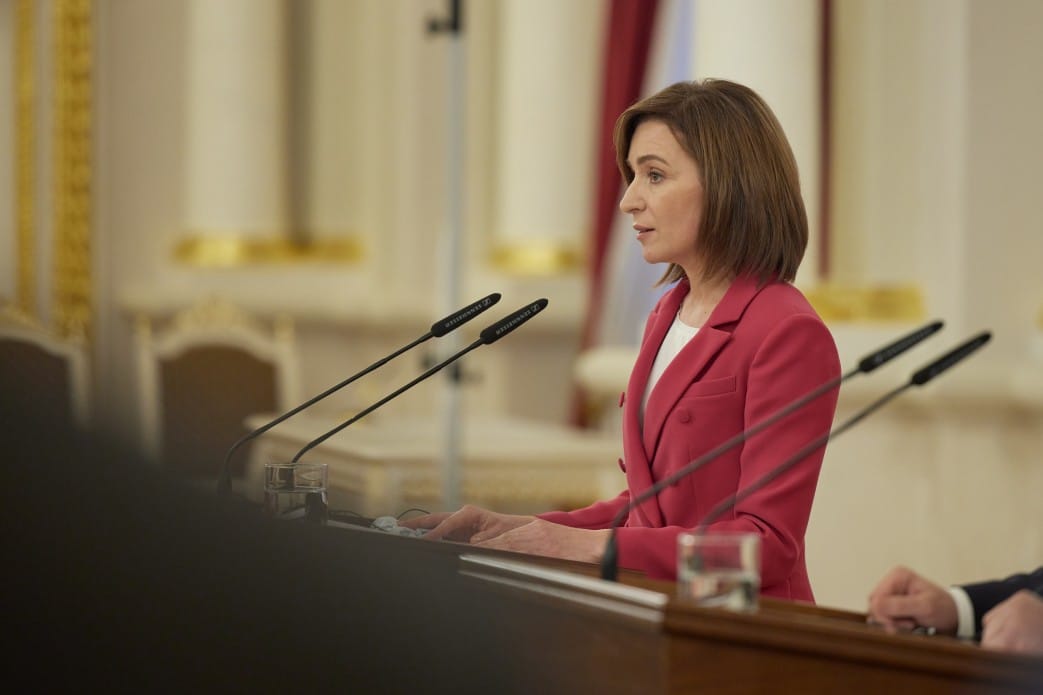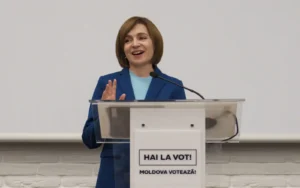Photo: President Sandu in 2020 – Wikimedia Commons
On Monday, Sept. 4, Moldovan President Maia Sandu visited the Dutch parliament as part of her state visit to the Netherlands. During the visit, Deputy Speaker of the Upper House Mei Li Vos praised Moldova’s solidarity and courage to help their neighbors. In addition, Roelien Kamminga, vice president of the Lower House, emphasized the strong ties between the Netherlands and Moldova.
The visit is a further rapprochement between the Netherlands and Moldova, after the Netherlands opened an embassy in Chisinau, the capital of Moldova, on April 19. In addition, the visit can be seen as part of Moldova’s accession to the European Union. In this process, it is important that the Netherlands and the other EU member states not only focus on economic and security aspects, but also remain committed to democratic values.
Moldova’s rapprochement with Europe
Sentiment in Moldova has been pro-EU for several years. In 2020, even before the war in Ukraine, Sandu was elected president and a year later her party gained a majority in the Moldovan Parliament. Moldova’s pro-EU development is partly explained by the increased political participation of the large Moldovan diaspora. The diaspora accounted for 16% of the total electorate in the last presidential election, and of these voters, as many as 93% voted for Sandu. Moldovans abroad are thus strong supporters of rapprochement with Europe.
The war in Ukraine has accelerated Moldovan rapprochement with Europe. From the member states, the willingness to further expand the European Union seems to have grown. Moldova gained candidate membership in June 2022, at the same time as Ukraine. Still, it remains to be seen how long the process for actual accession will eventually take. Croatia, the Union’s youngest member, was only able to join in 2013 after a 10-year accession process, and several other Western Balkan countries have been in the waiting room for more than 20 years.
Support from the European Union
To prepare Moldova for eventual accession to the European Union, the European Union offers several financial support measures. In particular, the measures focus on sheltering Ukrainian refugees, controlling migration, stabilizing energy supplies, promoting international trade and strengthening Moldova’s security services and military. So it is notable that the European Union is now focusing primarily on security and the economy in support packages for Moldova. In order to actually offer the country membership in the future, it is important that the European Union, and thus the Netherlands, not only focus on security and the economy, but look much also more broadly at democracy support.
Still, the focus on security at the moment is logical. The semi-autonomous region of Transnistria, backed by Russia, poses a major threat to Moldova. A small group of Russian military forces is operating in the region to protect it. In addition, Moldova depends on the Ukrainian air defense system to defend its airspace, but because of the war, Ukraine cannot fulfill this task. This poses a serious security threat to Moldova. Thus, it remains important for the European Union to support Moldova’s security.
Pro-Russian sentiments in Moldovan society
The presidential election also showed that there are still many pro-Russian sentiments in Moldovan society. Sandu’s opposing candidate, Igor Dodon, was openly backed by Russia and received 42% of the vote. Not counting votes from abroad, the difference between the two candidates was only 27,000 votes. There are also serious concerns about Russian influences surrounding the now-banned Shor party. Thus, beyond the Union’s important projects focusing on Moldova’s security and economy, attention to democracy support in the country is also crucial. The opening of the Dutch embassy in Chisinau and subsequent visit of President Sandu to the Netherlands is an excellent first step.
Written by Ype Verhagen



